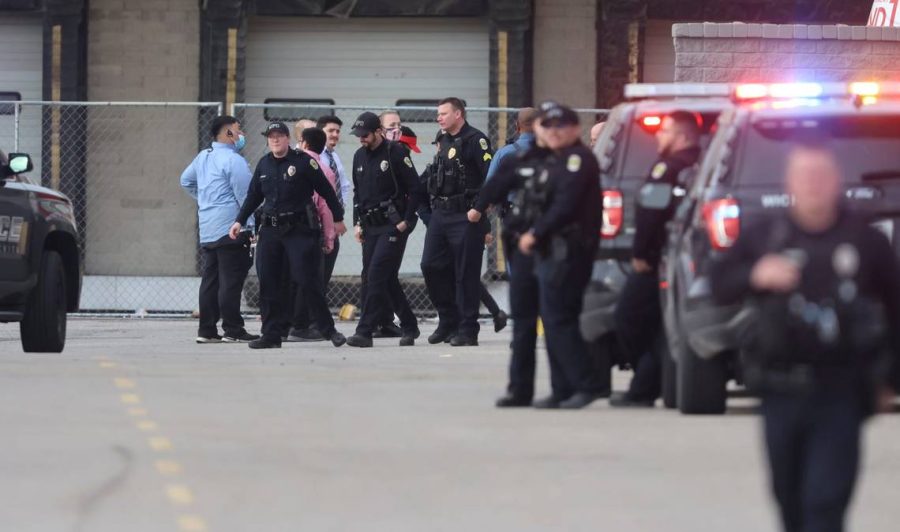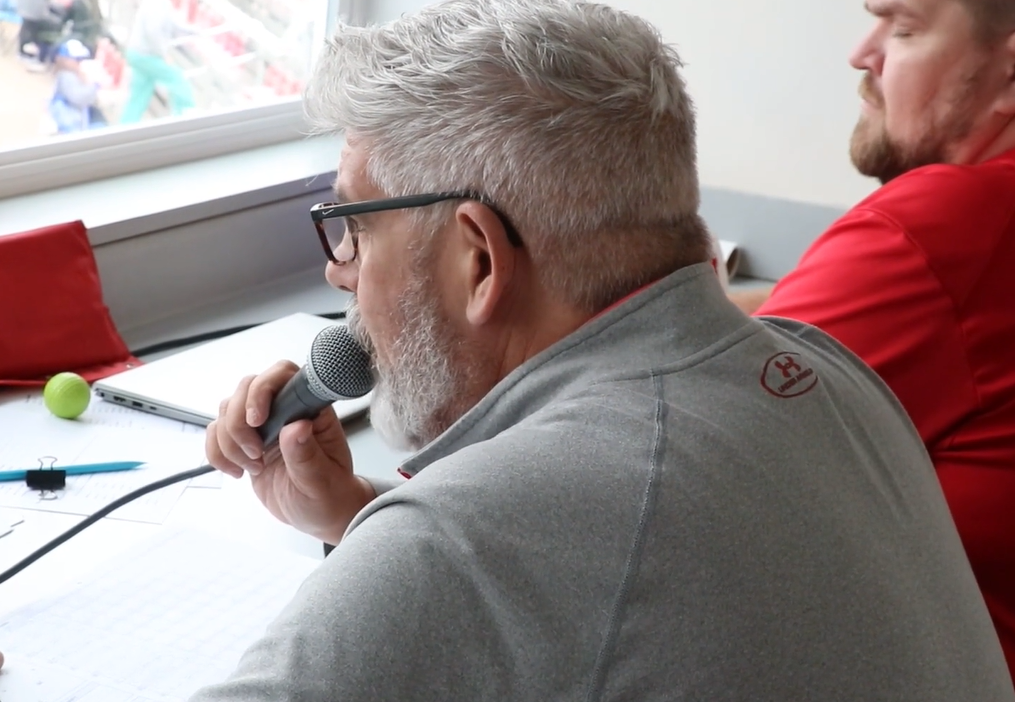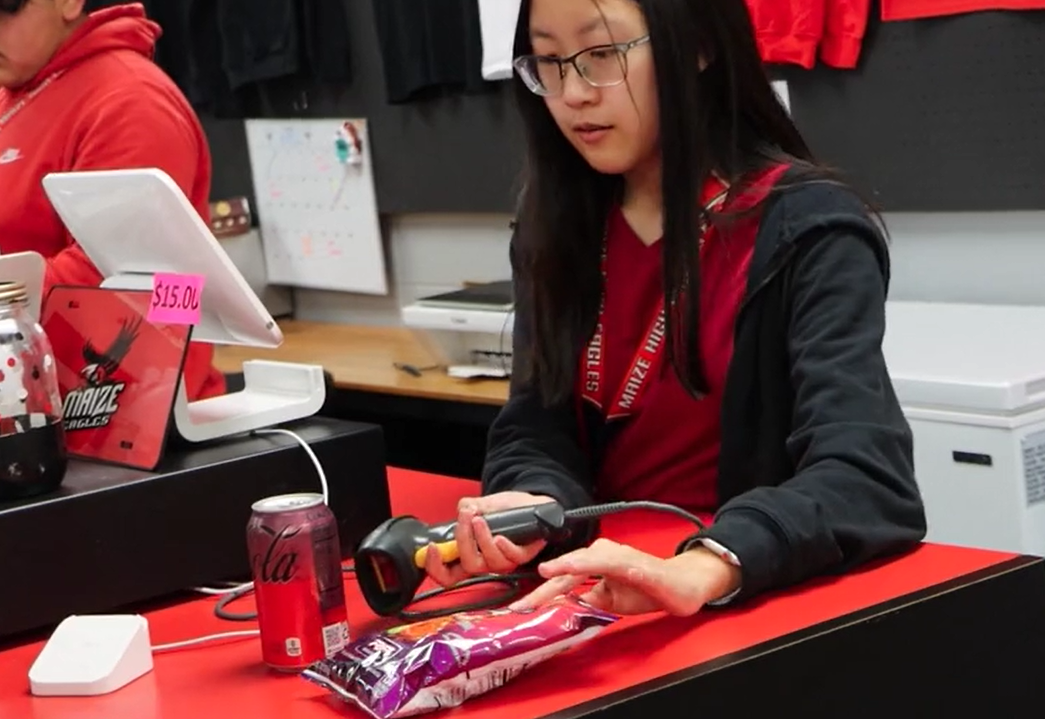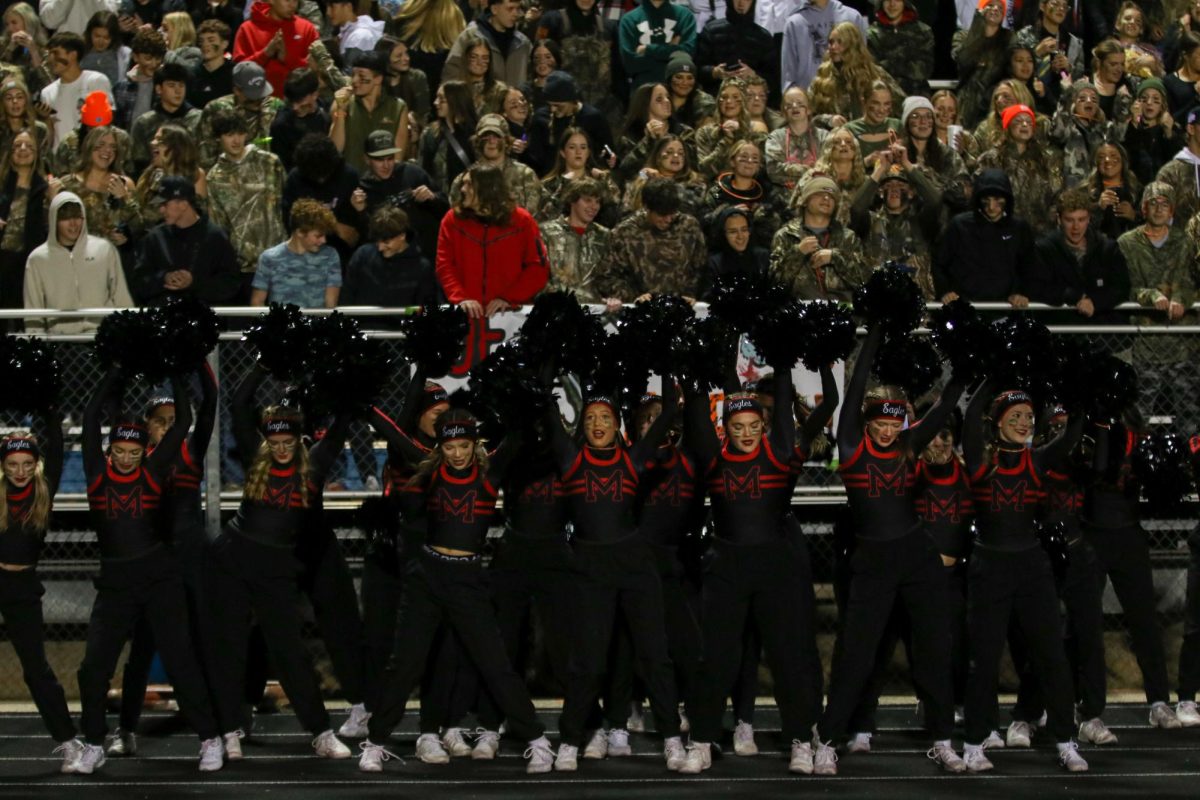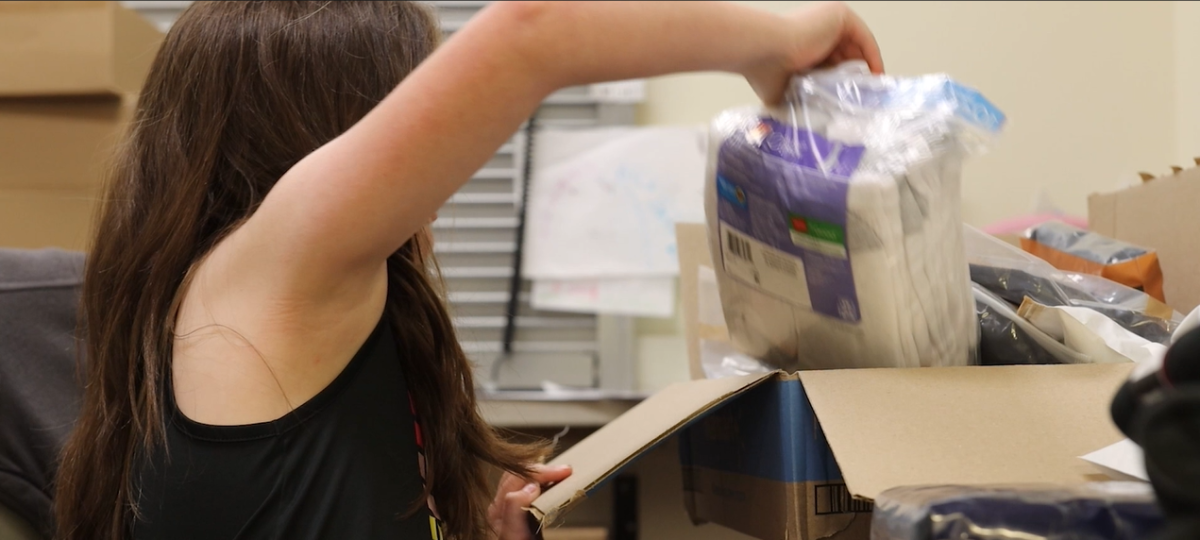‘There were cops everywhere’: Maize South junior copes with trauma of working at mall when shooting occurred
The shooting at Towne East Mall on Friday, March 18 resulted in the death of a 14 year old boy, Trenjvious Hutton around 5:30 pm. For people hearing about the event over the news, mental recovery from the event was fast. For people who were there, the week that has passed still has not made it much easier.
Courtesy of Travis Heying / The Wichita Eagle
Police investigate a shooting at Towne East Square on March 19. A 14 year old boy was killed. Maize South junior Vanessa Carey was working at the time of the shooting.
March 25, 2022
March 18, 2022
It was a normal day at work at Towne East Square for Maize South junior, Vanessa Carey.
Helping people shop; putting clothes away; a lunch break.
It was only her second week working.
The escalator was running as usual, a conveyor belt for the daily traffic.
She stepped onto the moving staircase.
“I got on the escalator and I remember noticing the man and little girl get on behind me when I processed the noise of the shots,” Carey said. “That’s when people started to run and someone started running up the escalator telling us to go back up.”
It did not take any time for her to realize what was happening.
How quickly her normal day at work changed.
A fourteen year old boy had been shot inside of Towne East Mall, as she would later learn.
The adrenaline took over.
“I found one of my coworkers and she was like, ‘go to that back corner,’ and so I started bringing customers to that corner and then we waited and I stood by the door and anytime I would see people I would go out and collect them and bring them back into the stockroom.”
Both of them are only sixteen.
“She was still a child. We’re both still children. And so I could tell she was just trying not to cry the whole time and I felt so bad for her because she just wouldn’t let it out and I knew she needed to.”
At sixteen years old, Carey was expected to know how to handle the customers in the store, whether it be people her age, children half her age, or parents double.
“I had all those people in the room and some of them are crying,” Carey said. “They all look stressed. They were in a semicircle around me and I just felt like ‘I’m supposed to be the one that knows what to do here and I have no clue what I’m doing. I don’t know where anything is. I don’t know if there’s a way to get them out from here. I don’t have a walkie talkie to talk to anyone. And it’s like, I had no clue when it was going to end.”
Once past the initial shock, Carey realized she needed to let the people closest to her know she was okay before they saw the shooting from another news outlet. Once I got to calm down I kind of got scared. I was like ‘well that could have gone way worse if it was a different situation — Vanessa Carey
“I texted my boyfriend,” Carey said. “I texted him immediately after it happened as soon as I got into the back room because I just felt like I had like, I didn’t even realize I just realized of a sudden that I needed to tell someone like ‘what if this is how I end and it’s in the stockroom; like I need to let somebody know I’m thinking of them.’ And so I texted him first and he was freaked out because, you know, there’s not news on it yet. And then I immediately texted my mom and I let her know if she heard about it, that I was okay because by that point it was calmed down.”
There were police everywhere in the mall.
There were families still stuck inside stores that did not have an outside exit.
Cars waiting to be claimed by the person or family inside the mall were left lined up in the parking lot until their owner could make it out.

“I saw people walking all the way around the mall trying to get to their cars because like if your car was on the other side, you had to walk outside to your car,” Carey said. “You couldn’t walk through the mall. There were cops everywhere. Like any entrance into any of the parking lots had at least five cop cars and they were just lined up like when you got past the line, they led you to the exit. And then they just were allowing as little people in and out as possible.”
Carey’s work day did not end once customers were allowed to leave. The employees were required to stay and continue their work as usual, despite the teen’s body still being a short distance outside of the doors.
“We had to stay another couple hours,” Carey said. “I think by the first hour all the customers were gone. I think it was an hour and a half. The first half hour all the customers were gone. We cleared out the store. The second hour we went and reviewed and recovered. We cleaned everything up. And then that’s when I walked by the main doors and the body was still there.”
Carey is sixteen years old, still a child.
Dr. Kassy Johnson is a clinical psychologist at Mosaic Mental Wellness. Practiced with topics such as coping with trauma and the mental health of children and teens, Johnson understands the affects events such as a shooting can have on adolescents.
“People will cope with trauma in a variety of ways based on skills they’ve learned or things they’ve been through,” Johnson said. “The younger a person is, the more limited their coping skills are. So for kids, a lot of times when they experience trauma they try to ignore that it’s happening or try to dissociate from it. There aren’t a lot of options for kids.” People around me joke about it a lot and that’s not great. — Vanessa Carey
When Carey was allowed to leave, the adrenaline wore off but the initial shock stayed firmly in place.
She felt okay. She had made it through. It didn’t seem so bad.
Until her eyes fell shut.
“I went to my friend’s house and I think I was still lowkey in shock because I wasn’t affected a whole lot,” Carey said. “I felt like I could already start joking about it. It wasn’t a big deal. And then that night, I couldn’t sleep. Anytime I closed my eyes I would remember it. It was like, I couldn’t sleep in the same bed as my friend. I had to go to the living room. I stayed up until I think three in the morning. I was not doing great.”
The trauma didn’t disappear under the jokes she told.
Behind the part of her that seemed unphased was the emotional part waiting to react to the day’s events.
“Once the trauma is over and you’re able to think about what happened, you’re able to start processing that information and that’s when you have an actual emotional reaction to the trauma,” Johnson said. “It’s important to acknowledge what happened; to think through your thoughts; think through your feelings; to talk to people about what happened. It helps you move past it when you’re able to verbalize and share those thoughts and feelings with other people. It’s important to not just move past it as if it didn’t happen because then oftentimes aspects of your reaction or aspects of your trauma and your reaction to it can come back up for you later.”
Carey had work the very next day.
The hours through that Friday night provided her the first real opportunity to cope with what had happened before she had to be back at work at 10:30 the next morning.
“Every time I see those doors, I’m kind of like ‘oh, I was there. That’s cool,’” Carey said. “I don’t know. It was not great. I think they should have either closed the store the next day. Like at least the immediate day. Or they should have had people working that didn’t work there the previous day. I feel like that would have maybe gone a little better.” Whenever the intercom comes on I get nervous like we’re going into a lockdown. — Vanessa Carey
It has now been about a week since the shooting. Although Carey feels more comfortable and not nearly on edge at work, certain parts of her job still make her relive March 18th again.
“I get a little scared to get on the escalator sometimes,” Carey said. “Like I know it’s stupid and I know it’s one of those things where its what I associate it with the event immediately as it happened, and so every time right after I get on the escalator I feel myself kind of tense and I get nervous. Or not I’ve just started walking down the escalator instead of just watching it letting me go down because I have it in my mind that if I change how I started, it’s not going to start.”


